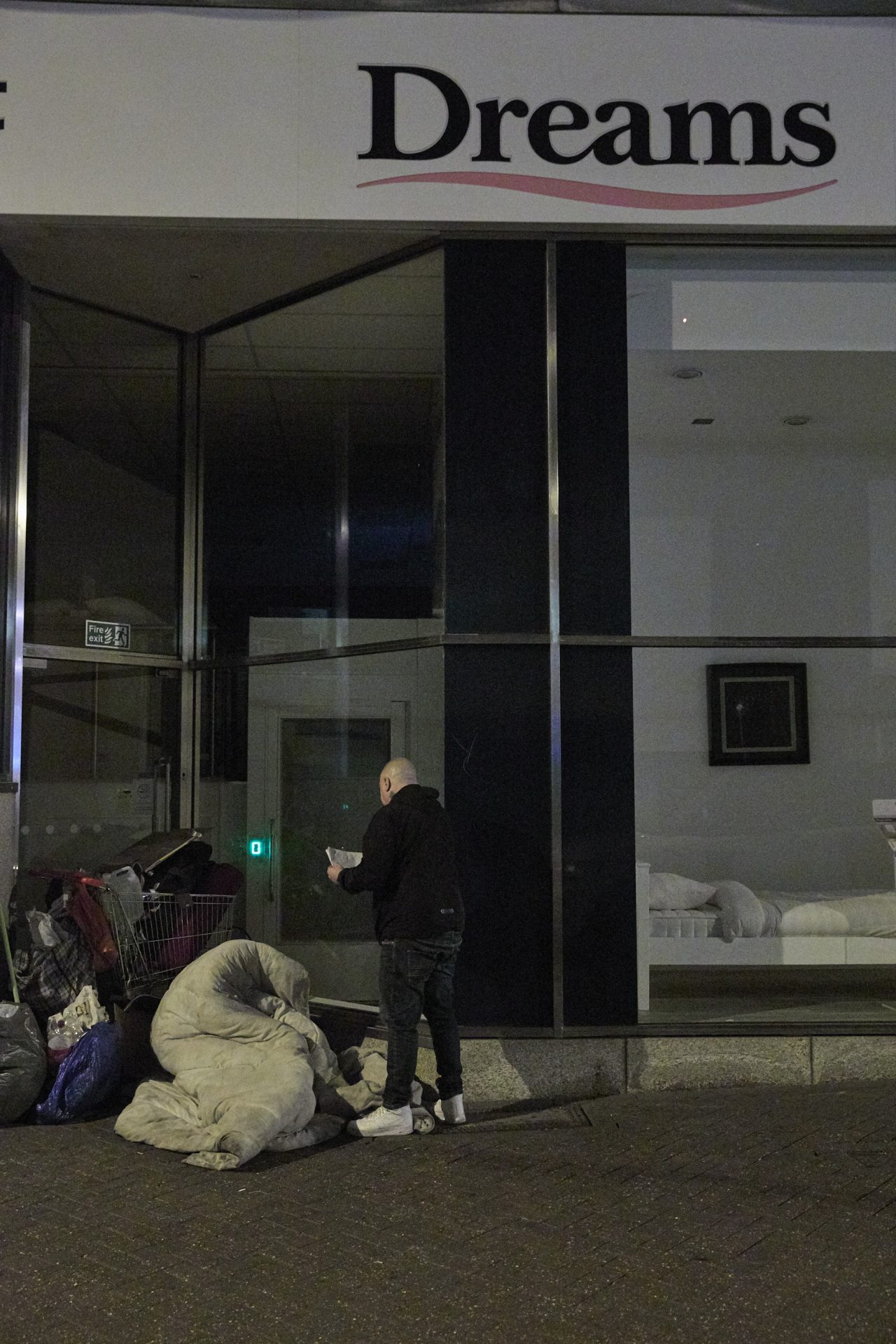How can the next Mayor of London help end street homelessness?
Local government has a crucial role to play in our work towards ending street homelessness. Here are the urgent points of action the next elected officials need to focus on, with efforts and funding spread across prevention, response and recovery.

The Mayoral and local government elections are taking place this week in London. Local government has a crucial role to play in our work towards ending street homelessness. During ‘Everyone In’ we saw incredible collaborations between organisations like Thames Reach and local authorities, to ensure people experiencing street homelessness were not left in danger on the streets during the lockdown. However, we are now finding that this short-term response to the pandemic, with people accommodated in hotels, is still in place a year on, highlighting how difficult it is to suitably house everyone who needs support. Here are the urgent points of action the next elected officials need to focus on, with efforts and funding spread across prevention, response and recovery.
The process of supporting people experiencing street homeless over the past year has been complicated. Some things have gone well and many people have had accommodation provided, even if only short term, as well as help to find their next steps, whether this is employment, housing or resolving their immigration status (or most likely a combination of these things).
A temporary relaxation of the ‘hostile environment’ allowed people with no recourse to public funds, and non-UK nationals, who are disproportionately represented on the streets, access to accommodation and support. There is a danger that many of this group, who still remain in emergency accommodation, will return to the streets once this accommodation is closed. Options for them will be few, and without political leadership from local and central government there is a likelihood that they will remain on the streets indefinitely. This will mean more detrimental damage to these people, who call London home, and more deaths on the streets.
Healthcare is a priority for everyone in London, perhaps now more than ever. We recognise that people experiencing homelessness find it more difficult to access the health services that they need, often making a greater use of these services only at a point of crisis. This means that they are more likely to suffer from chronic illness and more likely to die early. Everyone we work with at Thames Reach is encouraged and supported to register with their GP. However, health services need to improve their service of working with people who have, or are, experiencing street homelessness. We will continue to work with health services to break down the barriers that mean that people, often with multiple and complex needs, cannot access health services in their community.
In a similar vein, there remains a need for more higher-support accommodation. Many existing hostels need improvement or replacement, and it is important that there is investment of both revenue and capital in this area to ensure high-quality Covid-secure accommodation, in addition to sufficient staff capacity to work effectively to support people to move quickly into more permanent options. The last year has seen an increase in the accommodation available to people who have experienced street homelessness, and we welcome this. However no two people are the same; their specific needs, and situations that have led to their sleeping rough, mean that it is important to have a range of accommodation and support that can help them make a permanent move away from street homelessness and towards independence.
Finally, it is important that we aren’t distracted by the (hopefully) exceptional events of the past year, in order to act on a genuine commitment to ending street homelessness. As well as strengthening the response to street homelessness when it occurs, (particularly at the level of finding a quick resolution to street homelessness and the provision of emergency accommodation and support, with a focus on complex support needs) we do need to improve the work that we do to prevent street homelessness occurring in the first place. We know how to do this; one aspect of austerity has been the reduction and de-commissioning of locally funded tenancy sustainment and prevention services that were able to intervene before individuals became street homeless. They were effective in that they had many of the same characteristics as successful street outreach work: a willingness to seek out people who were at risk of losing their accommodation and a preparedness to assertively engage and build relationships with people who had poor previous experiences with services. In many cases these people are already in contact with existing statutory services, but the support they receive is often piecemeal. Good tenancy support can coordinate these interventions and improve their effectiveness.
In listening to those who are on the front-line doing the work to prevent and eradicate street homelessness in London, new elected officials can further use this expertise to make London a safer and more caring city for people affected by, at risk of or currently experiencing street homelessness.
